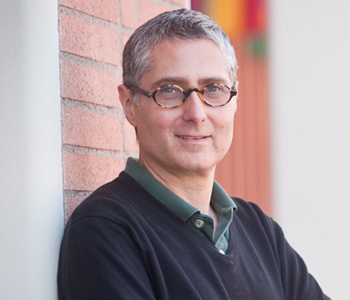
Jeffrey Shandler
Jeffrey Shandler, a Visual History Archive researcher and former Institute Fellow at the USC Shoah Foundation, will return to USC this November to participate in the Memory, Media and Technology: Exploring the Trajectories of Schindler’s List international conference.
The conference – a collaboration between the USC Shoah Foundation and its Center for Advanced Genocide Research – marks the 20th anniversary of Schindler’s List and the USC Shoah Foundation by examining the trajectories of memory, media, and technology in multiple forms and venues and from the vantage of a range of disciplines. Presentations by scholars and educators on their work will be complemented by roundtable discussions on the role of media archives in research and education, the role of mediated memories in facilitating public action, and the future of these new practices for mediating memory.
Shandler is chair and professor of Jewish studies at Rutgers University. He researches Holocaust remembrance, American Jewish culture and media and Yiddish language and culture, and published a multimedia article on the Scalar platform called Survivors on Schindler’s List. He was the USC Shoah Foundation Institute Fellow in spring 2013.
He is chair of the conference’s steering committee and will participate in the “Early Mediations of the Holocaust” panel discussion.
Shandler said the conference program includes both roundtables of presenters who will address large, overarching issues, such as the role of digital archives in research and pedagogy, and panels that bring together scholars who submitted proposals for individual papers, around themes that emerged from their work.
“These themes included topics we anticipated addressing, such as the role of digital media in memory projects, as well as unexpected discoveries, including people working on the use of other, older media in genocide remembrance in the early post-World War II era, and scholars working on oral histories of survivors of war and genocide in Indonesia during three different periods of its history,” he said.
Though the scholars attending the conference work in different disciplines and examine various places, times and cultures, their work is all connected to the larger topics of memory studies, genocide studies, and/or media archives, Shandler said. The conference will allow them to expand the range of possibilities for their own research and discover new collaborations and resources.
“The conference will enable scholars to make connections with people they don’t know and to reflect on approaches to the larger topics at hand that are new to them,” Shandler said. “The conference will also demonstrate how the VHA is situated at a complex intersection of research and pedagogical interests, above and beyond those envisioned when this project was initiated 20 years ago.”